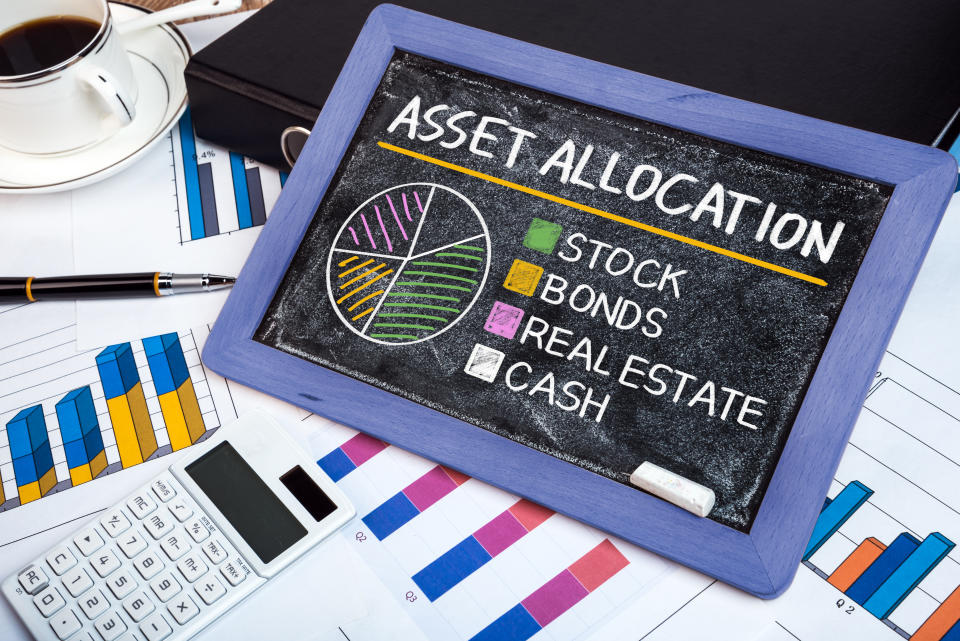The one reason you might want to check your 401(k)
This is not the best time to check on your 401(k) account. The global coronavirus crisis has upended businesses and despite some drastic government action, the stock market is in shambles. After you reset your password to restore access, you will see nothing but very bad news.
The S&P 500 index (^GSPC) is down a coronary-inducing 31% off its February highs. That means if you’re young and your 401(k) mostly has stocks (let’s say you own S&P 500 index funds), you’re probably down around 30%.
Read more: 401(k) plans and how they work
As you get older, financial advisers typically advise transitioning out of more volatile and risky assets like stocks and into the safety of bonds. For a retirement account like an IRA or a 401(k), younger people are very stock-heavy — sometimes 100% invested in stocks, because they have a long way to go until they’ll need the money and the market will have enough time to correct and move higher, which they almost always do.
“If you have a five- or 10- or 15-year horizon, this is probably a blip in the road,” said Great Hill Capital Chairman Thomas Hayes on Yahoo Finance’s “The Ticker.” “You probably want to hang tight. If you’re adding every single month, that’s a good thing — you’re buying less expensively for the long-term.”
For people at retirement age, the numbers are different – it’s often 55% stocks and 45% bonds, but there’s no hard allocation for everyone.

The point is, everyone usually chooses an asset allocation that’s appropriate for their age, though many people do it via a target-date fund, which does it automatically. (You just give them your money, and they follow a “glide path” that unloads stock exposure slowly until you die.)
If you don’t have a target date fund, it’s not automatic. Which brings us to probably the one reason you might want to peep your 401(k) if you’re a long way from using it. The stock market’s craziness could have completely thrown off your allocations. It might be time to rebalance.
“One of the things that we like to do in these periods of dislocation is rebalance,” said Hayes.
If you’re trying to have your money 75% stocks and 25% bonds, but the stocks just got hammered 30%, you might be left with just 68% in stocks — which may not be where you want to be.
If you’re looking long term, Hayes said, fixing your allocation when stocks fall means buying them inexpensively for the long term.
“You may want to check in with your financial adviser and say ‘does this make sense to rebalance some of the portfolio,’” Hayes said.
Rebalancing can be just as easy as exchanging one stock index fund for a bond index fund — or selling a fund for cash. Most financial services platforms have a handy tool that can show you what your current allocations are.
Conversely, if your stocks are doing really well, your portfolio might hold 85% stocks, and need to swap a few of them out for bonds to get back to your target allocation.
Rebalancing, however, can be especially important for people close to retirement or in it — people who will need to draw on their investments. Because stocks are more volatile, not planning properly and having a suboptimal asset allocation could mean being forced to sell when the market is low.
“If you’re coming up on retirement, definitely have a conversation with your financial adviser and have some things in safer positions so that you can have access to the income in the short term in the next 12, 24 some-odd months,” Hayes said.
-
Ethan Wolff-Mann is a writer at Yahoo Finance focusing on consumer issues, personal finance, retail, airlines, and more. Follow him on Twitter @ewolffmann.
Here’s how long it usually takes to recover from a bear market
Companies face fresh security risks due to people working from home
Why it's important to still own stocks at retirement — even now
Fidelity, Vanguard, T. Rowe Price to investors: 'Stay the course'
Why the US economy is particularly sensitive to the coronavirus outbreak
Coronavirus price gouging: 3 charts show Amazon's wild spikes
Read the latest financial and business news from Yahoo Finance
Follow Yahoo Finance on Twitter, Facebook, Instagram, Flipboard, LinkedIn, YouTube, and reddit.